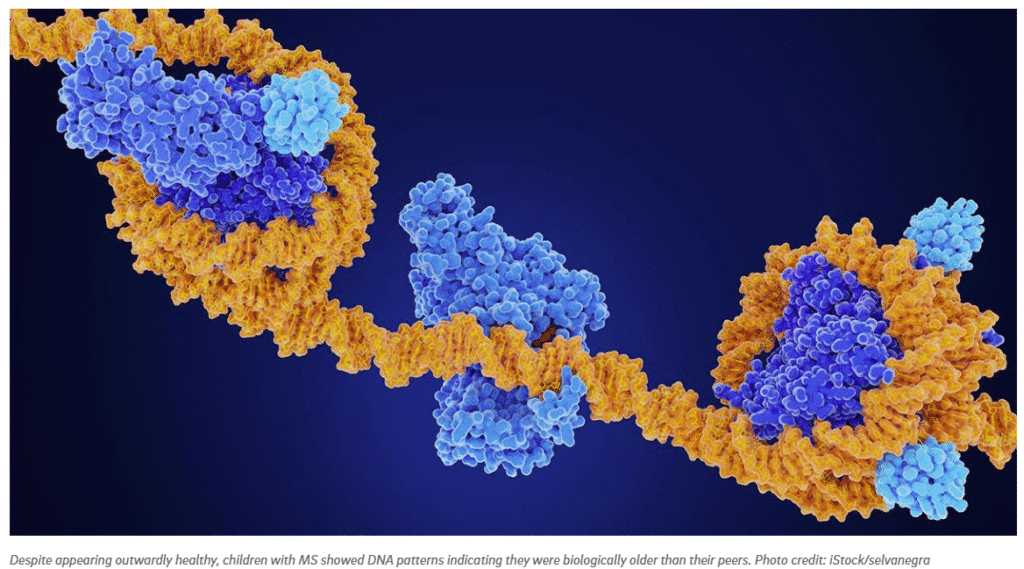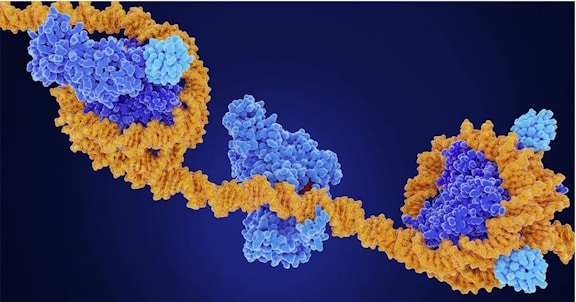First-of-its kind study reveals signs of premature biological aging in teenagers with MS pointing to new treatment possibilities beyond immunosuppression

June 9, 2025
Researchers from University of California San Diego School of Medicine have discovered that children living with multiple sclerosis (MS) show signs of accelerated biological aging, even in their teenage years. The research published online recently in Neurology®, the medical journal of the American Academy of Neurology, is the first to examine whether MS causes early aging in a pediatric population — offering new insight into the disease and its long-term progression.
“We found evidence that children living with MS experience accelerated biological aging,” said Jennifer S. Graves, M.D., Ph.D., senior author of the study, professor and vice chair of neurosciences and division chief of neuroimmunology at UC San Diego. “Compared to young people without MS, youth with MS had evidence of accelerated epigenetic age, a measurement of DNA chemical modifications associated with aging. We know that aging is related to the development of a less treatable form of MS and that adults with MS face both normal aging and accelerated aging from the disease.”
MS is a lifelong autoimmune disease that attacks the brain, spinal cord and optic nerves. The research team used DNA methylation markers — molecular changes that indicate biological age — to analyze blood samples from 125 children with MS and 145 children without MS. In contrast to chronological age, which reflects the number of birthdays, biological age tracks how quickly the body is wearing down on a cellular level.
The study focused on children and teenagers not yet impacted by the processes of normal aging and age-related illnesses like hypertension and diabetes. Despite appearing outwardly healthy, children with MS showed DNA patterns indicating they were biologically older than their peers.
The researchers found differences in four different epigenetic clocks and signs of accelerated aging in MS patients in models of two clocks most sensitive to health-related stress and inflammation. Epigenetic clocks are age-predicting algorithms that calculate epigenetic age as an estimate of chronological age or age-associated clinical events such as disease or all-cause mortality. The most affected kids appeared to be aging up to two years faster biologically than their healthy peers, even though their average chronological age was just 15.
Biological age has already been linked to disability progression in adults with MS. This study suggests the process may start much earlier than previously thought, potentially even before visible symptoms of progression appear. And that could change the way MS is treated.
“This is a whole new concept in MS,” said Graves. “Aging isn’t something we think of affecting teenagers. But these kids are accumulating cellular damage that may not show up clinically until years later, when they suddenly transition from doing fine to disease progression in their 30s. It is a significant finding to see this accelerated aging in children. If we can understand the interplay between the immune system, the brain and aging — and break that open — we might be able to put MS into full remission in the future.”
CLICK here to Continue reading
“““““““““““““““““““““““““““““““““““““““““““““““““`
Stay informed with MS news and information – Sign-up here
For MS patients, caregivers or clinicians, Care to chat about MS? Join Our online COMMUNITY
““““““““““““““““““““““““““““““““““““““““““““““““““



